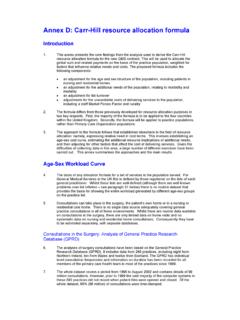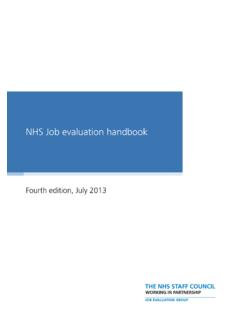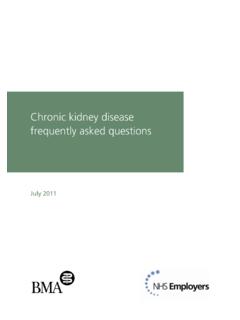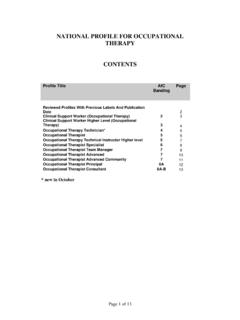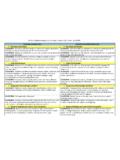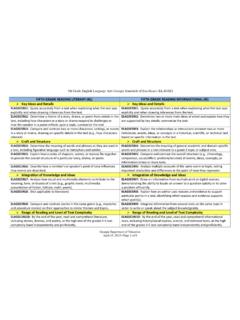Transcription of LANGUAGE COMPETENCY: GOOD PRACTICE FOR …
1 FEBRUARY 2018 LANGUAGE competency : good PRACTICE FOR EMPLOYERS2 February 2018 LANGUAGE competency : good PRACTICE for employersFEBRUARY 2018 LANGUAGE competency : good PRACTICE FOR EMPLOYERSI ntroduction Key considerations for employers Setting the level of competency to be achieved The person specification and selection process Training Challenges against recruitment decisions Seeking assurance of compliance How professional regulatory bodies assess LANGUAGE competency UK nationals EEA nationals (including Swiss nationals and individuals with European Community rights) International graduates english LANGUAGE tests Europass International english LANGUAGE testing system (IELTS) Occupational english Test (OET) Common European Framework of Reference (CEFR) Sign LANGUAGE How to verify overseas qualifications SOLVIT support for breach of EU rights Appendix 1: Majority english speaking countries Appendix 2.
2 Regulatory requirements for EEA nationals and international graduates Appendix 3: Common European Framework (CEFR) LANGUAGE levels Appendix 4: LANGUAGE test equivalentsContents3345555 66677 778888 9 9 11 12 14 17 February 2018 3 LANGUAGE competency : good PRACTICE for employersIntroduction employers are responsible for ensuring that everyone involved in the delivery of NHS services has the required level of english LANGUAGE competence to enable them to effectively carry out their role and deliver high quality, safe patient document outlines the factors employers will need to consider in terms of assessing the LANGUAGE competency of applicants, where appropriate. It also provides information about the associated statutory duties that regulatory bodies already have in place as part of their registration requirements, which will support employers to enhance their existing local protocols to effectively assess LANGUAGE competency .
3 Identifying english LANGUAGE competency prior to offering an appointment helps to assure protection for patients, employing organisations and employees. While english LANGUAGE competence testing does not establish an individual s aptitude for effective communication, it can help to provide a useful baseline to build guidance does not deal with the handling of concerns about an employee s communication skills in english . If, once appointed, it becomes apparent that an individual s communication skills are not at an appropriate level, it is the responsibility of the employer to implement measures to support that individual. Where a problem persists or an incident has occurred and a significant risk has been identified, it may be appropriate to initiate an investigation in accordance with local capability or disciplinary procedures.
4 Key considerations for employersWhen appointing individuals who are registered with a professional regulatory body, employers can usually be assured that they will have the minimum standard of communication set by that body. This should mean candidates have the required level of english competency for their profession. This assurance should be obtained by undertaking the necessary checks with the relevant professional regulatory body as outlined in the NHS Employment Check Standards. The types of assurances sought by regulatory bodies when considering placing EEA nationals and international graduates on their registers can be found under the section on How regulatory bodies assess LANGUAGE competency and in Appendix this gives a certain level of assurance for registered healthcare workers from outside the UK, employers still have a duty to assure themselves that all individuals have the appropriate level of english competency to carry out the specific role they are being appointed to do.
5 This duty is further reinforced by Part 7 of the Immigration Act which stipulates that employers must ensure that everyone involved in the delivery of NHS services has the required level of english LANGUAGE competency to deliver safe patient care. Under normal circumstances, any measure of LANGUAGE competency should be assessed through the individual s application or as part of the interview process. Where seeking assurance as part of an individual s application, any assessment will need to consider any evidence provided by the applicant to demonstrate that they: have passed an english LANGUAGE competency test see examples listed in the section on english LANGUAGE competency on page seven4 February 2018 LANGUAGE competency : good PRACTICE for employersFEBRUARY 2018 LANGUAGE competency .
6 good PRACTICE FOR employers hold a degree or relevant qualification that was taught in english by a recognised institution aboard have lived in a multi-lingual household where a relative or carer used english as their primary form of communication are a national from a majority english speaking country see list of countries in Appendix 1 have worked in an organisation/institution where english was their primary LANGUAGE have pursued part of their education in the is important to note, that there is no legal requirement for employers to start systematically re-testing EEA nationals and international graduates to assess their LANGUAGE competency . This document outlines a number of different processes employers can apply where any such assurances about an applicant s LANGUAGE competency cannot be guaranteed or where, on employment, concerns are raised about an individual s ability to clearly and effectively communicate with patients and government s Code of PRACTICE on the english LANGUAGE requirements for public sector workers was launched in November 2016.
7 The document provides principles and guidance around the obligations employers have for public facing staff within the public sector, who must be fluent in english or Welsh. The Code should be used in conjunction with this guidance steps described in this guidance document and the Code referenced above, are consistent with ethnicity and disability discrimination the level of competency to be achievedEmployers may find it helpful to refer to tools that help staff identify the skills they require, such as the Knowledge and Skills Framework (KSF) when assessing what level of competence might be required for individual roles. The KSF is a tool designed to identify the knowledge, skills and development that all workers need to enable them to do their job effectively under Agenda for Change.
8 It focuses on six core dimensions covering key areas that apply to every job, including communication. It spans across four levels and includes simple behaviours to check against. Further information about the KSF can be found on the NHS employers medical, dental and very senior manager posts that do not have a KSF outline, employers will need to specify the appropriate level of LANGUAGE proficiency required. This should be determined in accordance with the duties and responsibilities of the role. Under normal circumstances, any such positions are normally assessed at the highest level of LANGUAGE will need to determine with the agency or contractor what an appropriate level of proficiency would be. Proficiency requirements should be proportionate to the duties and responsibilities being undertaken in any given role and integrated into any contract or service level agreements with that provider.
9 employers may wish to use the LANGUAGE competency requirements outlined by the professional regulatory bodies as a guide. See Appendix 3 for further details. February 2018 5 LANGUAGE competency : good PRACTICE for employersThe person specification and selection processUnder the NHS Employment Check Standards employers are required to seek the necessary assurance of any qualifications that are relevant to the role being appointed to. In accordance with good recruitment PRACTICE , the inclusion of any LANGUAGE competency requirements should be made clear in the person specification for the role being appointed to. As outlined earlier in this document, individuals can demonstrate their level of LANGUAGE competency in a variety of ways, therefore the person specification should reflect what equivalent assessment can be accepted where individuals have not carried out an appropriate test.
10 If requiring individuals to undergo a LANGUAGE competency assessment (for example, Europass) as part of the recruitment process, employers must ensure that all job applicants are treated in the same way at each stage of the recruitment process, to ensure they remain compliant with anti-discrimination should consider introducing LANGUAGE competency requirements in existing statutory training programmes. All staff (existing or new) should be made aware of their employers responsibilities to seek relevant assurances of LANGUAGE competency . It is also important that they understand the possible actions that could be taken if their LANGUAGE competency in spoken english (or Welsh) is lacking and their rights. Challenges against recruitment decisionsAll individuals have a right to seek feedback on any decisions made by a prospective employer not to recruit them.


